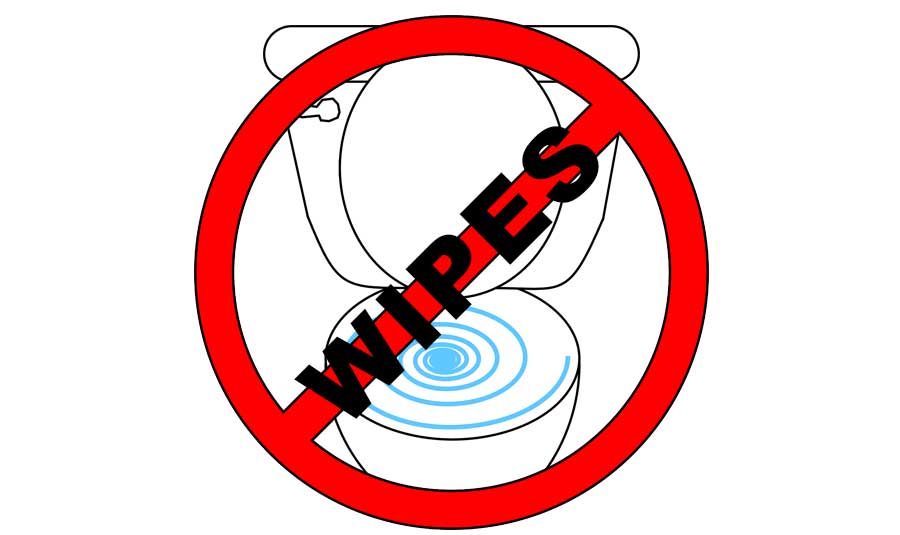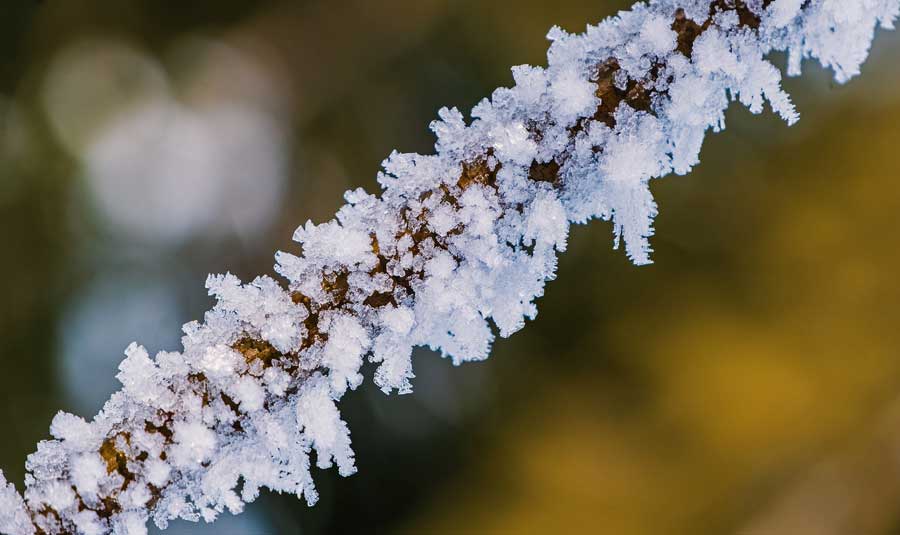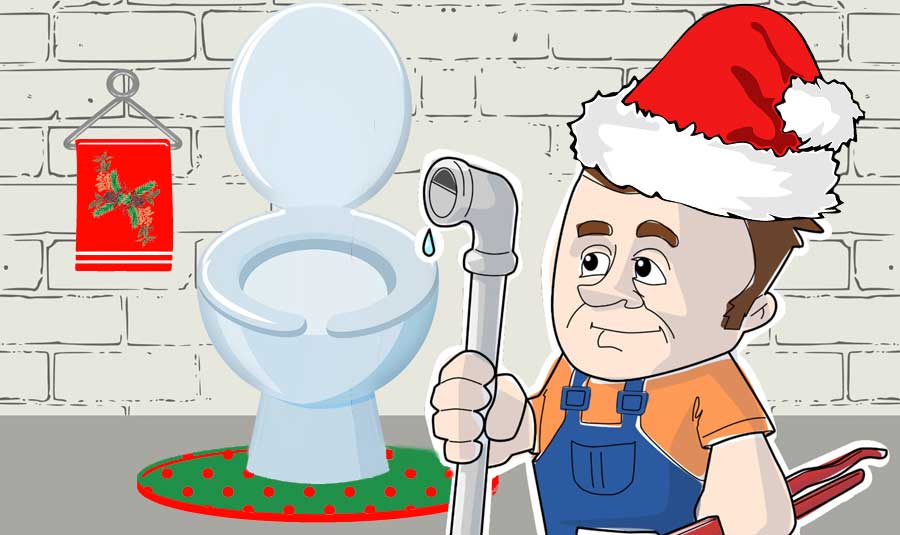Flushable wipes are not flushable, no matter what they say in the advertisements! We know, that’s pretty devastating to hear. After all, wipes are great for changing babies on the go or cleaning up small messes. They are easy and convenient. But unfortunately, not even “flushable” wipes should go anywhere near the toilet. “Why not?” you might be wondering.
12 of the Best Summer Plumbing Tips
by Nevie Sessoms, Owner One Stop Plumbing
Are you looking for some summer plumbing tips?
We’ve put together a list of the 12 Best Summer Plumbing Tips that will help keep things flowing out of the faucet and down the drain! As our community starts opening up again, we’re all spending more time outside. Plus, our kids are out of school now, and that means more kids in the house. More dishes in the sink. Even more, showers that need hot water. More things going down the garbage disposal — you get the picture.
So, what can you do to prevent clogged pipes, dripping faucets, and a constantly running toilet?
Here are our summer plumbing tips, to get you ready for the next few months. Below, we’ll outline some common summertime problems and offer you advice on how to avoid them.
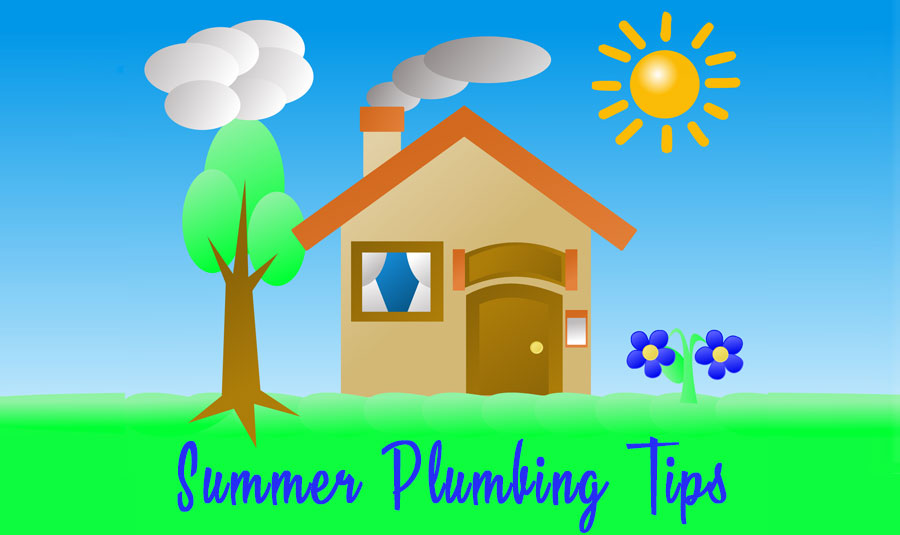
1. Clogged pipes, toilet, garbage disposal, or drain:
Drains around the house are prone to clogging. This is especially true when kids are around. Luckily, there are some simple steps you can take to prevent clogs. For starters, avoid flushing foreign objects down the toilet. This could include tampons, baby wipes, cotton swabs, cosmetic towelettes, and dental floss. And if your shower or sink is slow to drain, the drain may be clogged with hair, dead skin cells, soap scum or mineral buildup.
If it’s your kitchen sink that’s refusing to drain, long-term food buildup could be the culprit. A clogged garbage disposal would also make it difficult for your sink to drain. Teach your kids to avoid putting strange objects or toys down your drains. If you do, you should see a dramatic decrease in clogs! Having a hair- or food-catcher in your drain can also ensure easy clean-up. For really tough clogs, call a licensed plumber!
2. Loose toilet or sink:
If you find a pool of water around the base of a bathroom fixture, then you have a leak on your hands. Make sure that your toilets, sinks, and other fixtures are bolted to the floor. They should also have a tight seal to prevent leaks. If you do run into a loose toilet or sink, though, the fix may be as simple as replacing the seal or tightening bolts. Over time, it’s important to conduct regular inspections of fixtures for leaks or loose seals. This upkeep can help you avoid the water damage that often accompanies leaks.
3. Constantly running toilet:
There’s nothing like the sound of a toilet that won’t stop running. But a running toilet usually has a simple explanation. Toilets often keep running after the flush cycle if the float is too high. They also might continue running if the toilet flapper is old or leaking, or if the refill tube is too long. A simple part replacement can likely fix the problem, no matter what the cause. If that doesn’t work, it’s time to call a licensed plumber!
4. Leaky faucets:
A leaky faucet can be a pesky problem — and an expensive one. As you may know, leaky faucets often lead to higher water bills! As is the case with a running toilet, the cause of a leaky faucet is often an old part. This could include a worn-out O-ring or a clogged aerator. You might also be dealing with a poorly installed washer or a corroded valve seat. Try to check your faucets on a regular basis to make sure they’re working well, so that a leak doesn’t take you by surprise. It could save you money, reduce your water usage, and help the environment!
5. Exterior wall leaks and damage:
With the prospect of summer rain comes a fear of leaks around the house. If you have pipes that lead to the outside of your home, you may end up with leaks unless those pipes are sealed around where they enter your home. If they’re not, water will find its way into your home and could cause mold, mildew, wall damage, and other problems. As we head into the summer, inspect all your pipes to make sure they’re well-sealed and ready to weather any storm.
6. Pipes cracking or bursting:
This is a common plumbing problem for many homeowners. In the winter, frozen water usually causes cracked or burst pipes. What about during the summer? Old pipes, unresolved clogs, and high water pressure can all cause pipes to crack or burst. Still, you can avoid year-round pipe damage by looking out for clogs, leaks, and other warning signs.
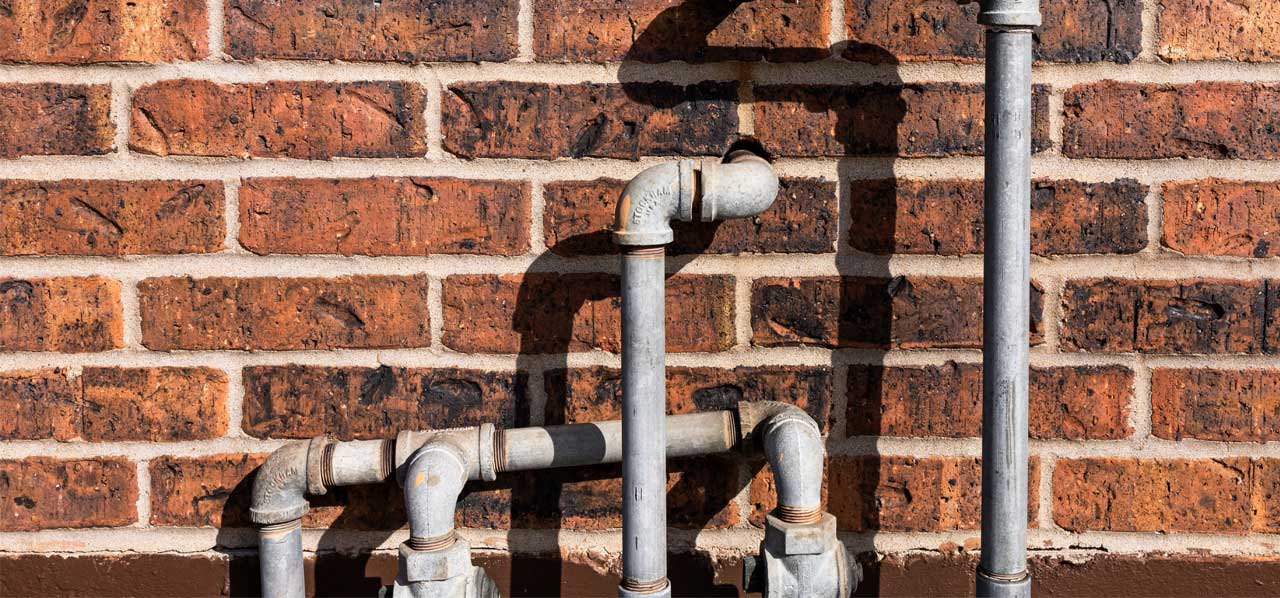
7. Sewer line clogs:
Repairing a sewer line can be expensive. As a preventative step, homeowners should be on the lookout for potential clogs in the sewer line. Have you noticed that your kitchen and bathroom fixtures are bubbling up or slow to drain? Or have you smelled sewage anywhere in your home? Those could be signs of a backup in your sewer line. Having a plumber inspect and clean your sewer line can help you get ahead of any potential damage. The best way to clear a clogged sewer line is with Hydro Jetting! Click here to learn more about Hydro Jetting.
8. Septic tank problems:
Summertime means more toilet-flushing, more showers, and more laundry. If you have a septic tank, solid waste from all these activities ends up there! Septic tank problems are not pleasant to think about, but it’s important for homeowners to do so. If you haven’t gotten your septic tank pumped out in the last couple of years, now might be the time. You should also watch what you flush down the toilet or drop in the garbage disposal. That’s because some objects can cause clogs between your home and your septic tank. But tree roots or major leaks can also cause septic tank problems. In those cases, it’s best to call a licensed plumber to find and deal with the problem. It’s definitely not something you want to be doing yourself! You need the professionals.
9. Summer plumbing tips for your vacation away from home:
As things open back up again this summer, you may be ready for a getaway. To make sure you don’t come back to any unpleasant surprises, there are a few key steps you can take. The main thing you should do is turn off your main water valve, as well as your sprinkler system if you have one. You should also clear your gutters and take care of any urgent landscaping, so tree roots don’t get into your pipes.
Inside the house, it’s a good idea to empty the dishwasher, washing machine and anything else that uses water. The key here is to avoid any excess moisture buildup while you’re away, so you don’t come back to water damage or mold. Finally, if you’re going to be away for more than a week or two, you could ask a neighbor to check up on your house. They can make sure nothing has gone awry around your home. In addition, there is the option to turn your water off at its main source into your house.
10. Hydro/Water Jet preventative maintenance:
Hydro Jetting, or Water Jetting, is a method to clear out clogged drains or sewage lines. You may think of Hydro Jetting as a last resort to fix a clog. However, it’s also a great tool for preventative maintenance. To avoid any serious blockages or damage to your pipes, ask a plumber about Water Jetting as preventative maintenance. Don’t know what Hydro Jetting is and how it works? Click here to learn more and watch a Hydro Jetting video demonstration.
11. Summer Plumbing Tips for the Apollo Water Heater System Prep:
Water heaters need regular maintenance. The start of a new season is a great time to take care of that. You might not think about hot water as an essential summer need. Still, a malfunctioning water heater can cause many problems. To get ready for the summer, inspect your home’s water heater for rust and corrosion. You should also make sure the hot water is working well throughout your home. Click here to learn more about water heater maintenance.
12. Leaking water hose bibs:
A leaky hose bib — also known as an outside spigot — can be a nightmare. It can be easy to forget about hose bibs, until you notice that you’re paying a lot more for water. There are a few reasons an outside spigot might leak, such as a worn-out washer or a loose packing nut. As you’re getting ready for the summer, check your home, yard, and water meter. If you’re noticing wet spots or higher water usage, you might have hose bib leaks on your hands. If you catch it early, it’s a quick and easy fix for a plumber, but a leaky spigot can cause serious damage over time. As with a leaky faucet or toilet, fixing the problem could save you money, reduce your water usage, and help the environment!
You can avoid many plumbing crises by following these 12 Best Summer Plumbing Tips, maintenance, and upkeep.
Regular inspections of your home and yard can help you catch leaks, clogs, and other problems. But with the kids at home and busy summer plans, we know it’s not always easy. Even the most vigilant homeowner might find themselves with a plumbing problem. When that happens, it’s important to call a licensed plumber in your area. And that means calling One Stop Plumbing!
One Stop Plumbing
If you’re in the Hampton Roads, Virginia region, give One Stop Plumbing a call! We’re a locally-owned plumbing company. We are repair specialists, and we have the knowledge and experience to make necessary inspections and repairs. We know how stressful a plumbing crisis can be, and we want to help our neighbors have a stress-free summer!
If you see or hear a Drip. Drip. Drop. Call One Stop! (757) 321-8874!
Nevie Sessons is the owner of One Stop Plumbing. As a locally owned and operated company, Nevie built the company from the ground up starting in 2005. He is a Master Plumber licensed by the Virginia Department of Professional Occupation and Regulation (DPOR), and he is a Master Gas Fitter.

